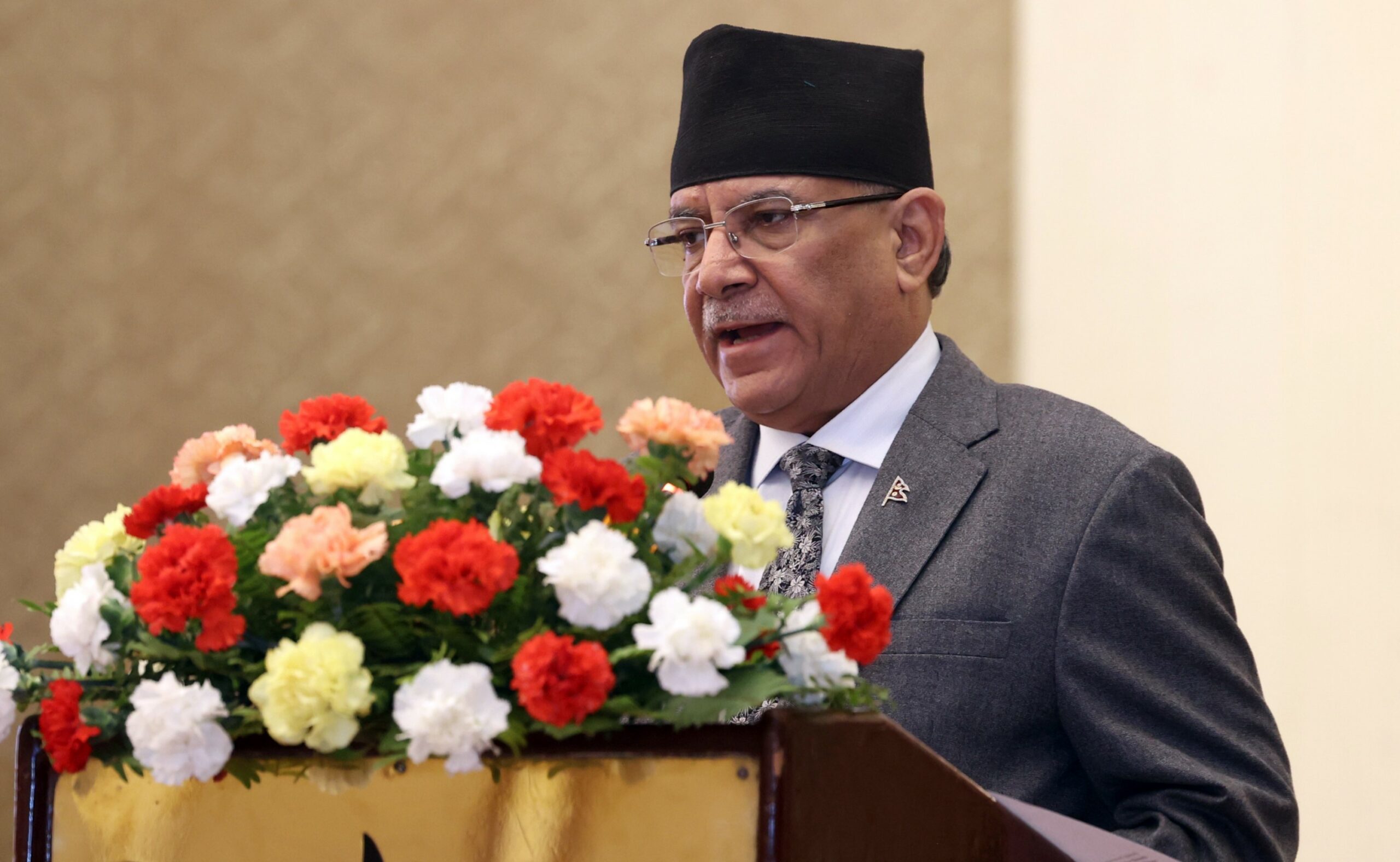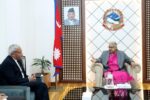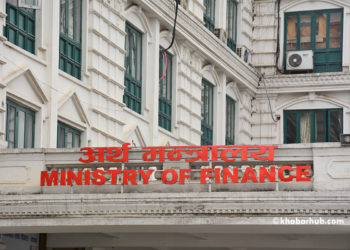KATHMANDU: The government led by Prime Minister Pushpa Kamal Dahal is on the verge of collapse due to an agreement to form a coalition between the Nepali Congress and CPN-UML.
However, a meeting of the CPN (Maoist Center) held earlier this morning directed PM Dahal not to resign from his post but to face a vote of confidence.
PM Dahal also sought legal counsel from the Attorney General and other legal experts regarding the recent political developments.
According to sources, the legal experts argued that no other party can claim a majority in parliament unless the post of the PM is vacant.
Based on this argument, PM Dahal has prepared to seek a vote of confidence from parliament within 30 days if any coalition members withdraw their support from the government.
What’s in the Constitution?
PM Dahal was appointed as the head of government under Article 76 (2) of the Constitution of Nepal.
This article states that the President shall appoint the leader of the parliamentary party that commands a majority in the House of Representatives as the Prime Minister, and the Council of Ministers shall be constituted under his or her chairmanship.
In cases where no party has a clear majority in the House of Representatives, the President shall appoint as Prime Minister a member of the House of Representatives who is able to command a majority with the support of two or more parties representing the House of Representatives.
Furthermore, Article 77 of the Constitution outlines four conditions for the vacation of the post of Prime Minister:
The office of the Prime Minister shall fall vacant in any of the following circumstances:
(a) If he or she tenders resignation in writing to the President.
(b) If a resolution of confidence is not adopted or a resolution of no confidence is adopted against him or her pursuant to Article 100.
(c) If he or she ceases to be a member of the House of Representatives.
(d) If he or she dies.
Let’s assume that the Nepali Congress and the UML submitted signatures of lawmakers claiming their majority in parliament to the President and requested the President to summon a claim to form a new government.
In this condition, will Dahal be ousted and another leader, such as KP Oli or Sher Bahadur Deuba, become the Prime Minister?
There is no such provision in the Constitution. Summoning the formation of a new government without the post of the Prime Minister falling vacant by the President is against the Constitution.
According to the Constitution, the President is accountable to the Prime Minister.
It is the parliament that appoints the Prime Minister, not the President.
Looking back at history, KP Oli was also ousted from his post as Prime Minister, but not because some parties claimed their majority; it was due to a mandamus issued by the Supreme Court.
This shows that the Prime Minister can either be ousted by a court order or as per Article 77 of the Constitution.
In a different scenario, if PM Dahal resigns from his post, a new government can be easily formed, given the recent agreement between the Nepali Congress and CPN-UML.
However, if PM Dahal chooses to face a vote of confidence rather than resign, it will take at least one month to form a new government.
Who will be the next Prime Minister? Deuba or Oli?
If the UML withdraws its support from the government and PM Dahal fails to secure his vote of confidence within one month, PM Dahal will be ousted.
However, there is no provision in the Constitution guaranteeing the appointment of UML Chair Oli as the new Prime Minister.
According to Article 76 of the Constitution of Nepal, related to the formation of a new government and the precedent set by the Supreme Court when Oli dissolved the parliament, if a government formed under Article 76 (2) fails to garner a vote of confidence, a new government will be formed under Article 76 (3).
Article 76 (3) states that if a Prime Minister cannot be appointed pursuant to clause (2) within thirty days after the declaration of the final results of the election to the House of Representatives, or if the appointed Prime Minister fails to secure a vote of confidence pursuant to clause (4), the President shall appoint as Prime Minister the leader of the parliamentary party with the highest number of members in the House of Representatives.
Currently, the Nepali Congress is the largest party in parliament, which means Deuba would be the next Prime Minister, not KP Oli.
However, Oli can be appointed Prime Minister after Deuba under Article 76 (5).
Meanwhile, the Nepali Congress and UML have already reached an agreement to appoint KP Oli as Prime Minister for the first one and a half years, after which the position will be handed over to the Nepali Congress.
If the reports of the agreement are accurate, constitutional disputes over appointing Oli as Prime Minister seem imminent.









Comment